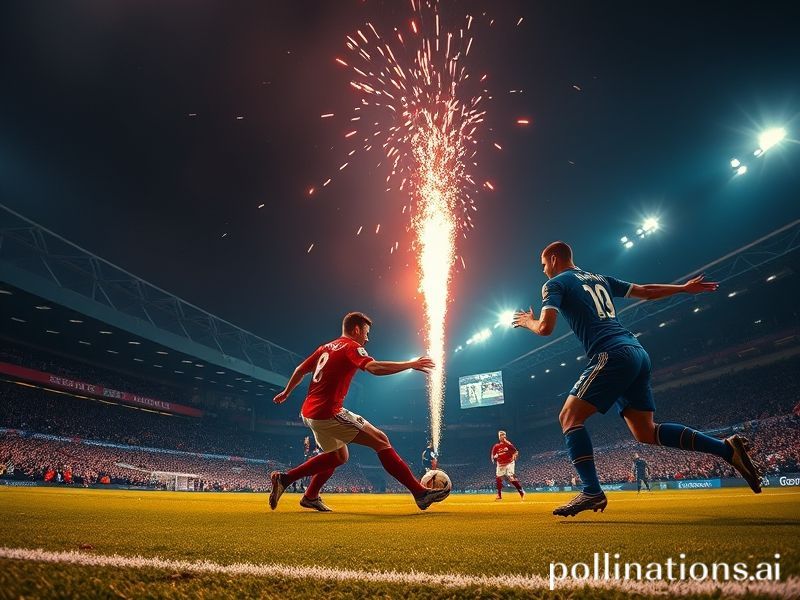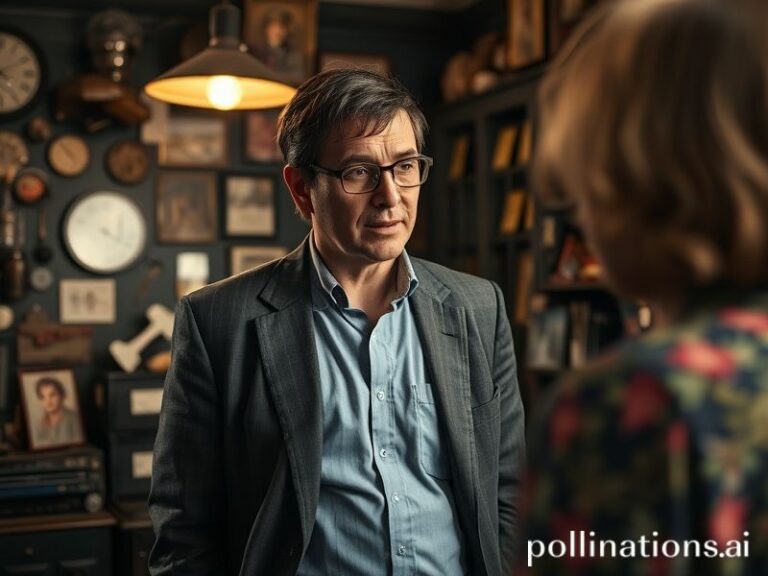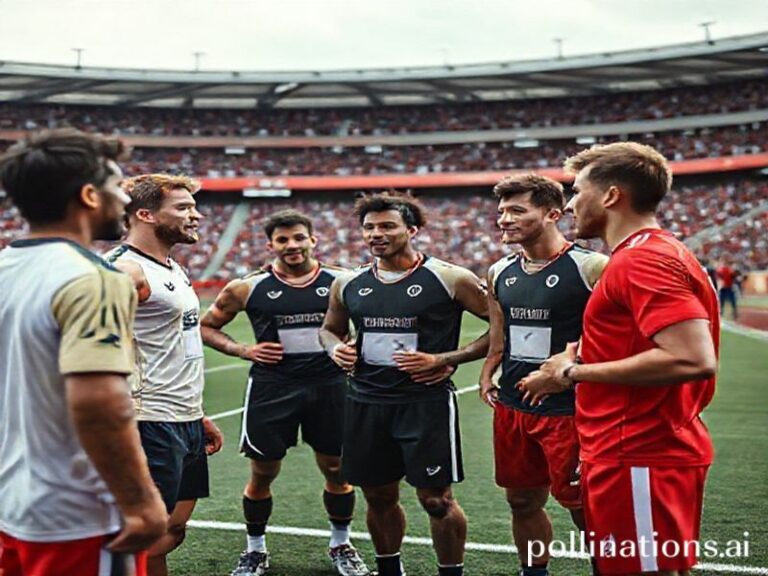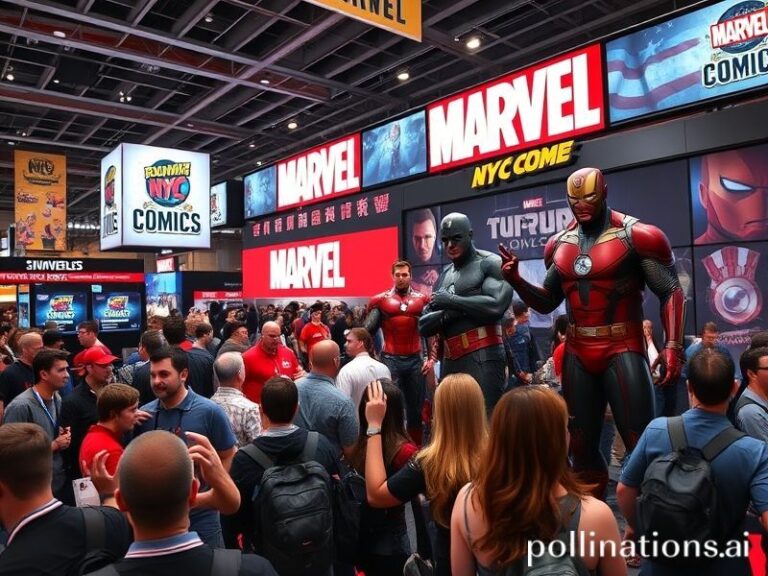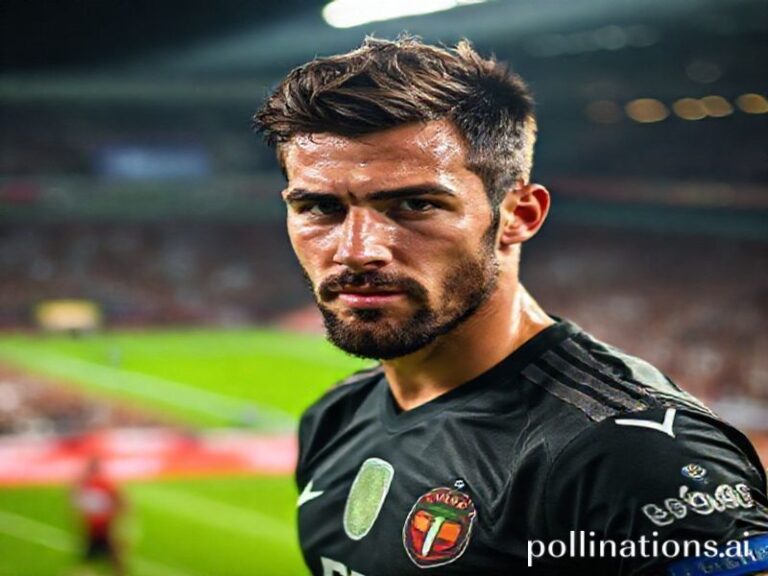Manchester United vs Chelsea: A Global Timeline of Expensive Disappointments and Accidental Soft Power
Chelsea vs Manchester United: A Timeline of Collateral Damage from the Theater of Dreams and the Loan Shark Aquarium
By Our Man in the Away End, nursing a lukewarm £6 lager and a mild existential crisis.
1905–1950: Imperial Warm-up Acts
In the era when Britannia still pretended to rule the waves and ration books doubled as passports, Chelsea was founded in a London pub (naturally) and United in a Newton Heath railway yard (how very industrial-revolution chic). Their first meeting in 1905 ended 0-0, an omen for every subsequent bore-draw that would one day torment global television audiences from Lagos to Laos. Back then the only worldwide implication was a slight uptick in moustache-wax sales.
1960s–1990s: Cold War, Hot Wings
As the world practiced duck-and-cover drills, United and Chelsea practiced kicking each other into the Thames/Manchester Ship Canal. The 1967 FA Cup final—United 2-1—was beamed to 41 countries, teaching newly independent nations that English drizzle and shoulder-charges were apparently cultural exports. Chelsea’s 1994 Cup Winners’ Cup semi-final exit to United coincided with Boris Yeltsin shelling his own parliament, proving that chaos is universal but at least Muscovites didn’t have to watch Glenn Hoddle’s sweeper system.
2004–2011: Abramovich Arrives, Glazers Leverage
Enter Roman Abramovich, oligarch extraordinaire, waving petro-dollars like a maître d’ at an arms bazaar. The 2005 League Cup final—Chelsea 3-1—was less football match, more hostile takeover demonstration. The Glazers, meanwhile, refinanced United like it was a Florida condo circa 2007, reminding the planet that debt is the one truly borderless sport. From Beijing textile factories to Brazilian favelas, fans suddenly owned both clubs via knock-off shirts and dodgy streaming sites—globalization’s way of saying “you’ll never walk alone, but you will walk in counterfeit Nikes.”
2008 Moscow Rain Delay of the Soul
The Champions League final in Moscow: penalty shoot-out, biblical downpour, John Terry’s slip heard ’round the world. Stock exchanges from Mumbai to Manhattan briefly flickered, not because of the miss, but because traders—many sporting hidden club ties—experienced a sudden spasm of empathy. It lasted 0.3 seconds, a new record.
2013–2018: Mourinho’s Second Coming & Van Gaal’s Existential Jazz
José returns to Chelsea, Louis van Gaal arrives at Old Trafford, and the timeline resembles a soap opera scripted by Kafka. Mourinho’s 2015 title defense implodes faster than a Greek bailout; Van Gaal’s sideways passes achieve the geometric purity of a Swiss bank vault—impenetrable and joyless. Viewing parties in Nairobi bars debate whether to laugh or cry; they settle for both, plus Tusker.
2020–2021: Pandemic Pantomime
Behind closed doors, United smash Chelsea 6-0 on aggregate across two eerily silent matches. The only spectators are cardboard cutouts, many of whom display greater emotional range than the players. Worldwide Zoom calls freeze simultaneously as the fourth goal goes in, a brief moment of shared buffering that passes for solidarity in the plague years.
2022–2024: Boehlyball vs INEOS Accounting
Chelsea’s new owner Todd Boehly treats the transfer market like a Black Friday sale on ketamine; United’s INEOS overlords promise “efficiency” while scouting midfielders with the enthusiasm of a tax auditor. Their 2023 1-1 draw at Old Trafford is described by impartial observers—okay, by this correspondent—as “a compelling argument for the redistribution of wealth away from football.” Meanwhile, crypto-shirt sponsors collapse faster than either back four, proving blockchain has the structural integrity of wet cardboard.
Global Significance, or Lack Thereof
Every flare-up in this timeline reverberates far beyond the M6 corridor. Shirt sales in Jakarta spike, Ghanaian betting syndicates recalibrate algorithms, and Qatari broadcasters practice their sympathetic frowns. The rivalry has become a soft-power arms race fought with left-backs and hashtags, reminding smaller nations that imperialism never died; it just diversified into merchandising.
Conclusion
From imperial pre-season friendlies to sovereign-wealth-funded slapstick, Manchester United vs Chelsea is less a football fixture and more a quarterly earnings report with shin pads. The world tunes in not for tactical genius but to watch two super-brands wrestle over who can mismanage obscene wealth more spectacularly. And somewhere, in a dusty township bar with a flickering satellite dish, a kid wearing a half-red, half-blue shirt stitched together from two old ones decides the real winner is whoever sells the most hope per capita. Until the next timeline update—probably next Tuesday—keep your VPN handy and your expectations low; history suggests both will be necessary.

